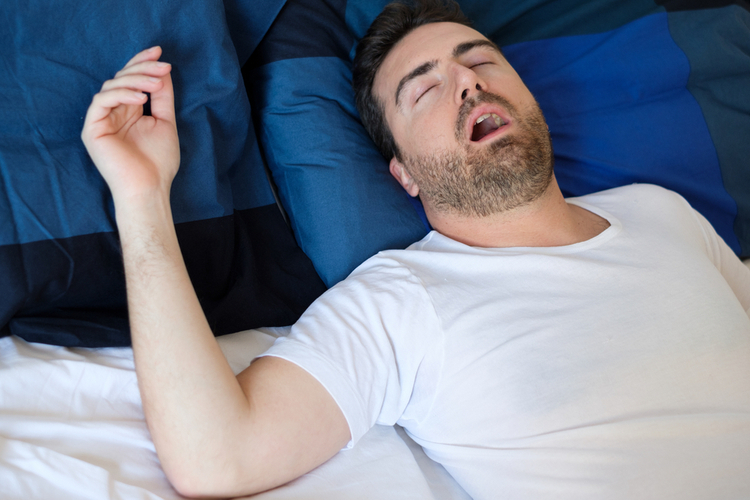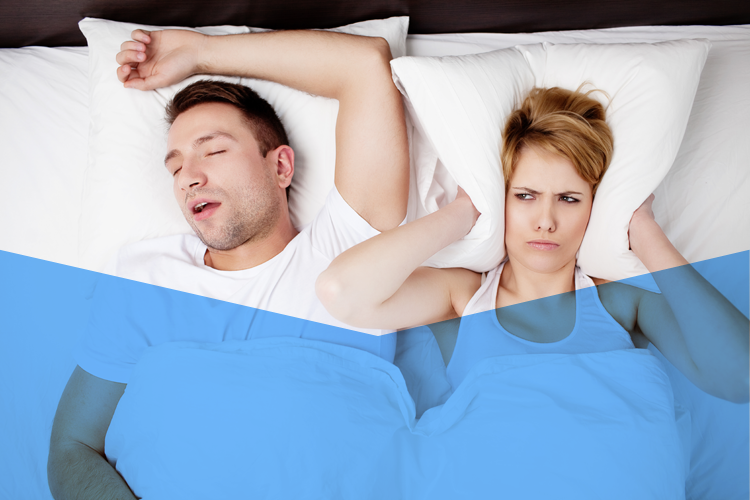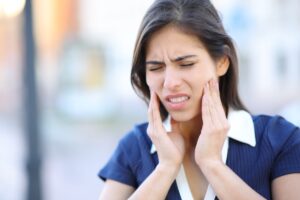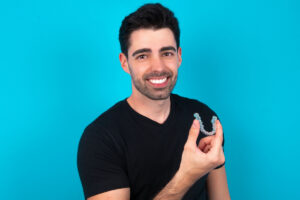If you have been diagnosed with obstructive sleep apnea, or you suspect you may have sleep apnea, you likely have started to do research on possible ways to treat it. And that’s a great thing! Sleep apnea is more than just loud snoring that might be bothering your partner when you sleep—it’s a dangerous condition with huge health repercussions, including increased risk for a heart attack, stroke, and more. One of the most common ways to correct the problem is a CPAP machine. But some people find the idea of strapping a machine on, and all the tubes and wires involved to be uncomfortable and frustrating. The good news for those people with mild to moderate sleep apnea is this: oral appliances can treat your sleep apnea and get you on your way to satisfying, blissful sleep. But how do oral appliances treat sleep apnea?
What is sleep apnea?
To understand how oral appliances can help, we’ve got to start with what is happening in your mouth and throat when you have obstructive sleep apnea. You likely know that if you have sleep apnea, you stop breathing several times throughout the night. With obstructive sleep apnea, this is because your airway is being blocked—but what is getting in the way? It turns out your own tongue or soft tissue is pressing against the back of your throat, preventing you from breathing as usual. Usually this is because your lower jaw is relaxing back in your mouth, causing the back of your tongue to close off the airway.
What are oral appliances?
An oral appliance is a device, like a retainer, that is custom fit to your mouth. It is removable, so you only put it in at night and can take it out in the morning.
How do oral appliances help?
Your oral appliance holds your lower jaw in a forward position, keeping your airway open. This allows you to continue breathing throughout the night, which is the key to both restful sleep and, as a bonus, prevents or minimizes snoring.
How do I know if an oral appliance will work for my sleep apnea?
Oral appliances are an excellent treatment option for people who have mild to moderate obstructive sleep apnea. They also are an option for people who can’t tolerate CPAP machines. If you know or suspect you have obstructive sleep apnea, your sleep-qualified dentist can get you started with a home sleep study to determine if an oral appliance is the right course of treatment.
How do I get started with an oral appliance?
Getting started is easy—visit a dentist who is qualified in sleep dentistry. At Rondeau and Associates, we offer a consultation where we do a series of tests to determine if we think an oral appliance is appropriate. Then we take more thorough records and have you complete a home sleep study. From there, you are fitted for an oral appliance and treatment can begin. You’ll be on your way to restful sleep and good health!
When you visit Rondeau and Associates, you are in good hands. Dr. Rondeau is a member of the Academy of Dental Sleep Medicine. You may think that sleep dentistry is a new field, but Dr. Rondeau has been treating patients for both snoring and sleep apnea with oral appliances for 18 years.







